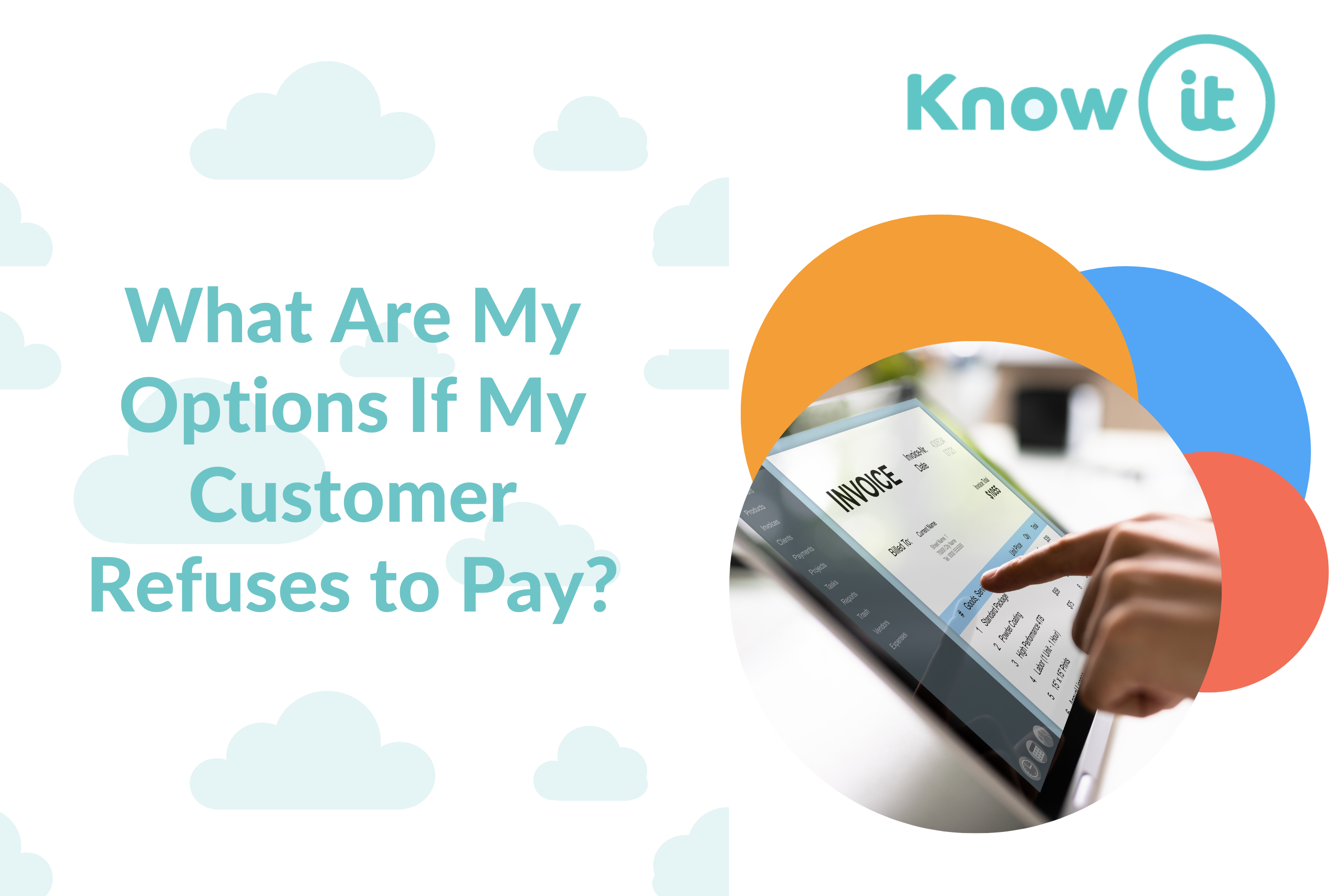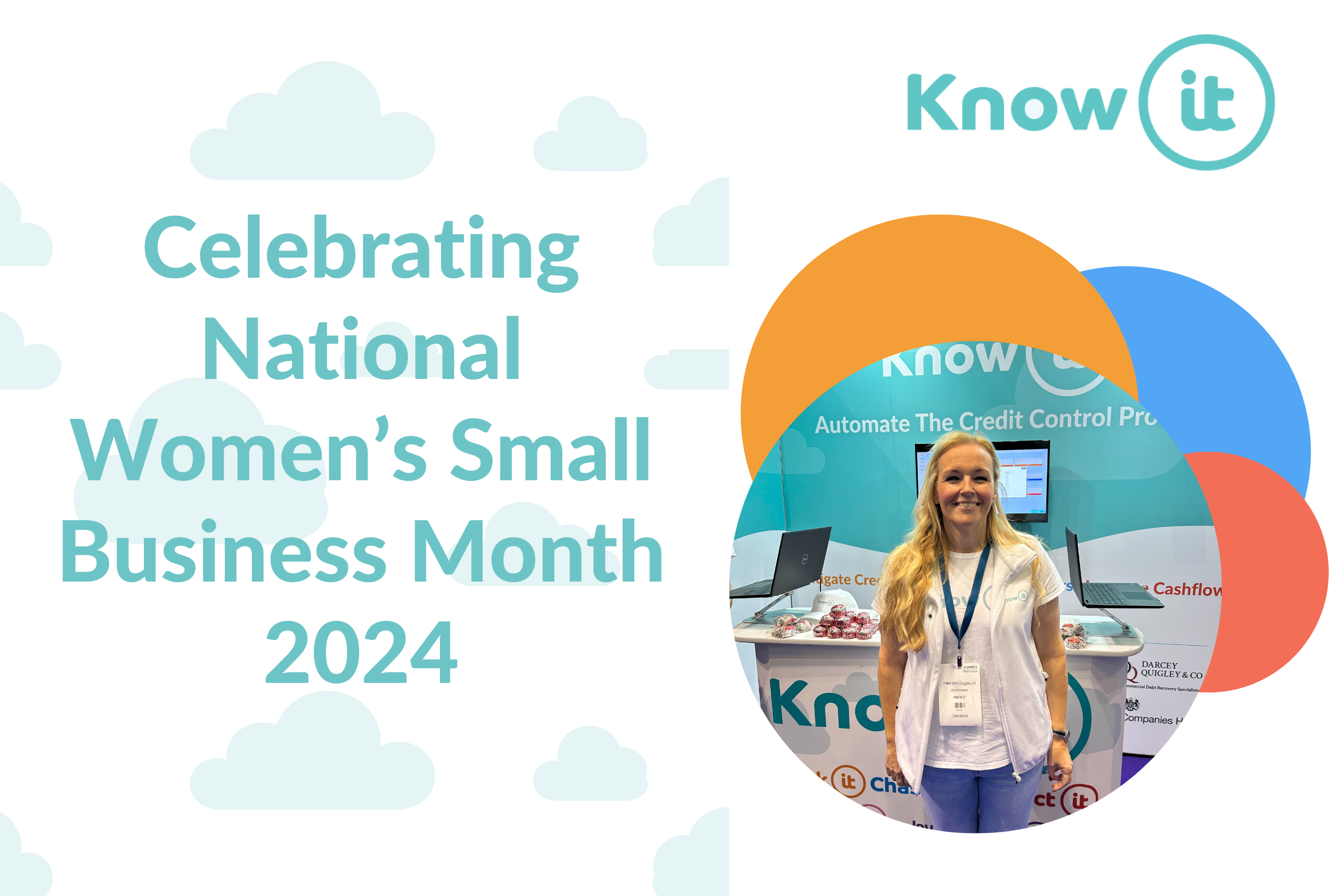The Dramatic Impact of Late Payments on SMEs
Late payments are ravaging SMEs in the UK with 50,000 businesses failing each year as a result of waiting for overdue invoices.
And the problem with late payments is only getting worse. The total value of overdue invoices has increased by 22% in the past 12 months with businesses now chasing £61 billion worth of unpaid invoices.
If your business is chasing overdue invoices this makes for some stark reading.
With so many businesses impacted each year, even if you don’t think your company is at risk of collapse, late payments could harm you because of the strain put on the credit cycle.
For example, if a company goes insolvent, they can’t pay their supplier. If their supplier owes you money, they may not be able to pay you because they have lost out on cash they were owed for an invoice of their own. The credit cycle can be vicious, and this is a tough situation too many businesses are finding themselves in.
Late payments are a ticking timebomb
Fiscal support from the government such as furlough and rates relief has now come to an end and now CBILs and bounce back loans are now being repaid. Something must give sooner or later.
Corporate insolvencies are also expected to spike 33% next year. The temporary ban on winding up petitions was lifted on 1st October 2021 which means they can now be put forward again.
Not only will we begin to see corporate insolvencies return to levels seen as “normal” pre-pandemic, but we will also see the backlog of insolvencies that would have otherwise happened if it wasn’t for the support given by the government. We will see companies collapse who would have failed even if the pandemic hadn’t been a factor.
Such a large spike in insolvencies will have a severe impact on businesses who are owed money from those companies at risk.
Preventing late payments with better credit control
Businesses can mitigate risk of late payments by implementing sound credit control processes.
Effective credit control begins before an invoice is even sent. If a business is to truly mitigate credit risk, their complete credit control process must be watertight, from when an order is accepted all the way to collecting payment.
Credit checking potential and existing customers
The first, and very often neglected, step in a stringent credit control process is running a thorough company credit check when a prospect makes an enquiry. A detailed company credit check will give you insight to a business’ credit history, trustworthiness and how likely they are to pay you on time.
Businesses should also use reputable credit bureaus known for the accuracy of the data they provide, such as Creditsafe. You may need to pay a small fee depending on where you get your company credit checks from, but it is a step worth taking for your own piece of mind.
Company credit checks will flag any financial information worth noting that could be deemed as a risk, their payment behaviour such as how long it typically takes them to settle payments, as well as CCJs (county court judgements). This will allow you to properly gauge the credit risk a customer could pose to your business so you can either set appropriate credit terms or decline an order according to how likely a customer is to be able to pay on time.
Credit reference agencies will use different data, criteria and scales to work out a credit score so the numbers or letters shown may differ for the same company. Although if a company is deemed a risk by one credit reference agency they will likely be flagged by others.
A company’s credit file is always in flux so it’s important to always have a handle on any changes that could have affected a company’s ability to pay on time from the last time you delivered a large order. This is where a credit monitoring service comes in handy. You’ll be automatically notified of any changes to a report without the need to purchase a new credit report for the same company.
Keeping on top of late payers
Once you accept an order and send an invoice, unfortunately no credit check can absolutely guarantee that your customer will pay you on time.
When an invoice becomes overdue it is vital that you keep communicating with your customer until they arrange payment. Businesses must be persistent when chasing overdue invoices and it pays, literally, to have a process in place for chasing payment.
Following a payment chasing process will mean you know exactly what communications to send depending on how overdue an invoice is. It’s startling how few businesses have a set process in place for when accounts become overdue.
Persistence is key when chasing late payments and it is always best to communicate with your customer using as many different channels as possible, as this makes your invoices harder to ignore. Email inboxes can be chaotic, so your emails could easily get lost. Letters on the other hand are harder to ignore as most businesses receive far less letters by post compared to email and we tend to receive our most urgent communications by letter.
For a more personal and direct approach you should consider contacting your customer by phone and SMS. Again, this will make you harder to ignore as you are contacting your customer through another channel. We find a three-pronged approach to chasing late payments is the most effective way to reduce debtor days.
How adopting technology can protect SMEs from late payment problems
Openness to technology is strongly linked to rapid growth for businesses with SMEs that are open to adopting technology are 2.5x more likely to grow by more than 20% compared to those that are closed to technology, according to McKinsey & Company’s SME taskforce.
Also, according to the annual Salesforce small and medium business trends report, 71% of growing SMEs survived the pandemic by going digital.
For businesses to thrive they must be open to change and implement processes to make operating more efficient. Digital adoption has taken giant leaps and we are blessed to have so many digital tools available to us that makes things possible for SMEs that would otherwise have only been accessible to much larger corporations with more resources.
The sky is the limit with what companies can do with technology across all functions of their business, and now they can leverage technology to mitigate credit risk and ultimately reduce late payments!
Be a Know-it-all with Check-it, Chase-it & Collect-it.
Credit checking & monitoring
Know-it automates the complete credit control process giving SMEs the ability to mitigate credit risk, increase cashflow and reduce debtor days.
Check-it gives businesses the tools to make more informed credit decisions by automating their credit checking with reliable real-time data from Creditsafe, Companies House, The Gazette and Unsecured Creditor Claims.
Harnessing data is so powerful for businesses. Check-it gives companies the intelligence they need on credit and payments to mitigate credit risk as soon as they accept an order.
When you purchase a Check-it credit report there’s no need to keep checking for any changes. The report will be automatically monitored and displayed on your dashboard.
Chasing invoices
When invoices become overdue who has time to chase late payers? Business owners and credit controllers have far too many other tasks to contend with.
Chase-it automatically sends payment reminders and chases invoices as soon as they become overdue. Easily customise emails, SMS and letters to fit your tone of voice and send them using your own customisable chasing payment schedule. Chase-it seamlessly integrates with your accountancy package and knows exactly when your invoices are due so they can be chased automatically.
Working with a debt recovery specialist
When late payers are particularly problematic, you’ll need to take firmer action.
Collect-it gives SMEs access to UK leading debt recovery partners Darcey Quigley & Co at their fingertips.
Using data from Chase-it, Collect-it provides an instant quote to collect overdue invoices from late payers.
Collect-it is risk free, you will only pay a percentage fee when your overdue invoice is successfully recovered.
Know-it makes credit management simple, mitigating credit risk and minimising late payments. Technology has now been democratised with the intelligence and resources now available to SMEs that were previously only available to corporate giants.
Try Know-it free for 30 days! You don’t even need to enter your credit card details. What have you got to lose?
Lynne is the Founder and CEO of Know-it!
She is a passionate, driven and forward-thinking entrepreneur determined to help resolve the late payment crisis gripping SMEs.
Having worked within the credit management industry for over 27 years and ran UK leading commercial debt recovery specialists Darcey Quigley & Co for over 16 years, Know-it was devleoped to make credit control more accessilble for SMEs to help them effectively mitigate credit risk, reduce debtor days and boost cashflow!
Connect with me on LinkedIn!



































